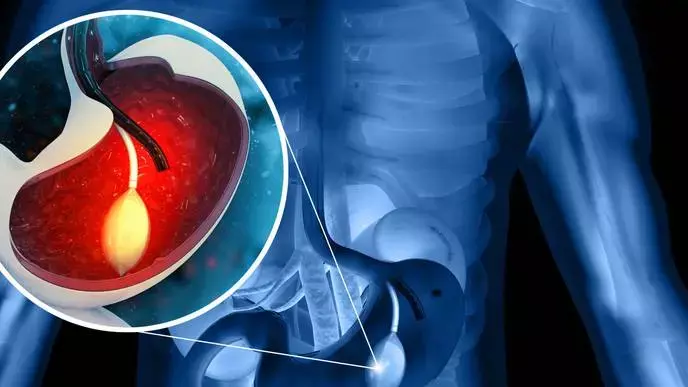- Home
- Medical news & Guidelines
- Anesthesiology
- Cardiology and CTVS
- Critical Care
- Dentistry
- Dermatology
- Diabetes and Endocrinology
- ENT
- Gastroenterology
- Medicine
- Nephrology
- Neurology
- Obstretics-Gynaecology
- Oncology
- Ophthalmology
- Orthopaedics
- Pediatrics-Neonatology
- Psychiatry
- Pulmonology
- Radiology
- Surgery
- Urology
- Laboratory Medicine
- Diet
- Nursing
- Paramedical
- Physiotherapy
- Health news
- Fact Check
- Bone Health Fact Check
- Brain Health Fact Check
- Cancer Related Fact Check
- Child Care Fact Check
- Dental and oral health fact check
- Diabetes and metabolic health fact check
- Diet and Nutrition Fact Check
- Eye and ENT Care Fact Check
- Fitness fact check
- Gut health fact check
- Heart health fact check
- Kidney health fact check
- Medical education fact check
- Men's health fact check
- Respiratory fact check
- Skin and hair care fact check
- Vaccine and Immunization fact check
- Women's health fact check
- AYUSH
- State News
- Andaman and Nicobar Islands
- Andhra Pradesh
- Arunachal Pradesh
- Assam
- Bihar
- Chandigarh
- Chattisgarh
- Dadra and Nagar Haveli
- Daman and Diu
- Delhi
- Goa
- Gujarat
- Haryana
- Himachal Pradesh
- Jammu & Kashmir
- Jharkhand
- Karnataka
- Kerala
- Ladakh
- Lakshadweep
- Madhya Pradesh
- Maharashtra
- Manipur
- Meghalaya
- Mizoram
- Nagaland
- Odisha
- Puducherry
- Punjab
- Rajasthan
- Sikkim
- Tamil Nadu
- Telangana
- Tripura
- Uttar Pradesh
- Uttrakhand
- West Bengal
- Medical Education
- Industry
High BMI associated with increased major complications after surgery, suggests study

High BMI associated with increased major complications after surgery suggests a new study published in Urogynecology.
Obesity adds complexity to the decision of surgical approach for pelvic organ prolapse; data regarding perioperative complications are needed. The study aimed to evaluate associations between body mass index (BMI) and surgical approach (vaginal vs laparoscopic) on perioperative complications. Patients who underwent prolapse surgery were identified via the Current Procedural Terminology codes from the American College of Surgeons National Surgical Quality Improvement Program database 2007-2018. Thirty-day major complications were compared across BMI to identify an inflection point, to create a dichotomous BMI variable. Multivariable logistic regression was used to assess the association between BMI and complications. An interaction term was introduced to evaluate effect modification by the operative approach. RESULTS: A total of 26,940 patients were identified (25,933 BMI < 40, 1,007 BMI ≥ 40). The proportion of patients experiencing a major complication was higher in the BMI ≥ 40 group (2.0 vs 1.1%, P = 0.007). In multivariate analysis, the odds of a major complication were 1.8 times higher for women with a BMI ≥ 40 (95% confidence interval, 1.1-2.9, P = 0.04). There was a significant interaction between the operative approach and BMI; therefore, further analyses were restricted to either vaginal or laparoscopic operative approaches. Among women who underwent vaginal prolapse repair, there was no difference in the odds of a major complication (adjusted odds ratio, 1.4; 0.8-2.4; P = 0.06). Among women who underwent laparoscopic repair, those with a BMI ≥ 40 were 6 times more likely to have a major complication (adjusted odds ratio, 6.0; 2.5-14.6; P < 0.001). Body mass index ≥ 40 was associated with an increased odds of a 30-day major complication. This association was greatest in women who underwent a laparoscopic prolapse repair.
Reference:
Kisby, Cassandra K., et al. "Impact of Severe Obesity On Major Perioperative Complications for Prolapse Surgery." Urogynecology (Philadelphia, Pa.), 2024.
Dr. Shravani Dali has completed her BDS from Pravara institute of medical sciences, loni. Following which she extensively worked in the healthcare sector for 2+ years. She has been actively involved in writing blogs in field of health and wellness. Currently she is pursuing her Masters of public health-health administration from Tata institute of social sciences. She can be contacted at editorial@medicaldialogues.in.
Dr Kamal Kant Kohli-MBBS, DTCD- a chest specialist with more than 30 years of practice and a flair for writing clinical articles, Dr Kamal Kant Kohli joined Medical Dialogues as a Chief Editor of Medical News. Besides writing articles, as an editor, he proofreads and verifies all the medical content published on Medical Dialogues including those coming from journals, studies,medical conferences,guidelines etc. Email: drkohli@medicaldialogues.in. Contact no. 011-43720751


